
THE LONGEST YARD is one of the essential films in all of Burt Reynolds’ career. He was already a star, on his way to becoming a global mega-celebrity and America’s number-one box-office champ, but in 1974 he wasn’t there yet. DELIVERANCE was a pivotal film for him, establishing that underneath the beauty and the flash he was a solid and serious actor. WHITE LIGHTNING was another crucial step in the construction of Burt’s movie-star persona. THE LONGEST YARD is one of the biggest crowd-pleasers in Burt’s filmography, but please don’t overlook the ways in which it was a bold choice and a risk for an up-and-coming American movie star.
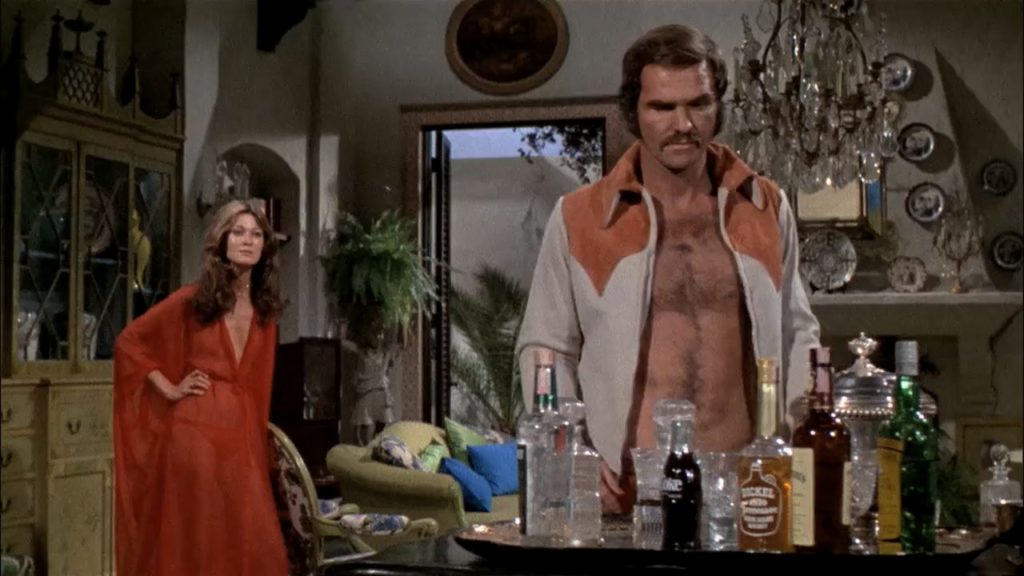
THE LONGEST YARD opens with Burt’s character Paul Crewe smacking around a woman in a drunken rage and stealing her car, ultimately sending it off a dock. Try to imagine Tom Cruise doing a role like that, even now, let alone, say, a year after TOP GUN. Or just compare it to the water-down of the Adam Sandler remake. The Paul Crewe at the start of is THE LONGEST YARD a real piece of shit. There’s not a lot of ambiguity there. The only reason a viewer likes him is because he looks like Burt Reynolds. It’s smart filmmaking on the part of screenwriter Tracy Keenan Wynn and veteran no-bullshit filmmaker Robert Aldrich, but on the part of Burt, it’s a daring stunt, one he pulls off flawlessly. If Crewe isn’t a woman-beating piece of shit at the start of the movie, it doesn’t mean nearly as much when he’s beaten down and humbled by prison, befriended by down-and-outers he would have previously judged, and eventually transformed into a team captain, a team player, a leader of men, and a true outlaw hero of 1970s cinema.
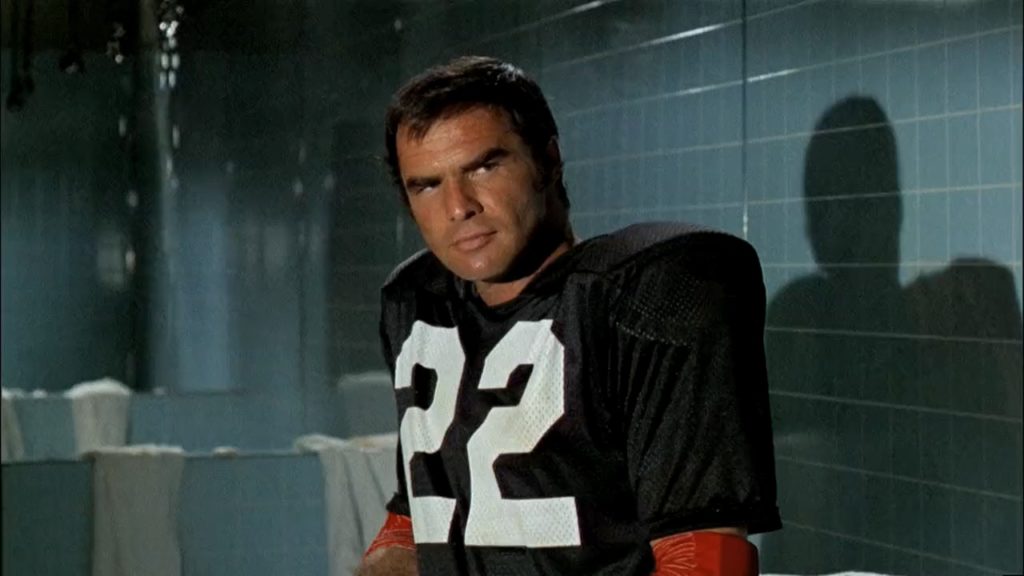
We celebrate iconoclastic acting talents like Robert De Niro and Jack Nicholson — rightly — for the outsider roles they performed in the 1970s, but we fail to give Burt Reynolds his due, because he was more glamorous, because he was more honest about the fun he was having than about his acting talent, because often he poked too much fun at himself, and because sometimes he took himself too seriously. But if you ask me, I would put the final moment of THE LONGEST YARD up against almost any other era-defining counter-culture cinematic moment, when Paul Crewe walks away from the field after winning the convicts-versus-guards game. Burt walks with nobility and purpose, every inch the anti-authoritarian revolutionary — and potential martyr.
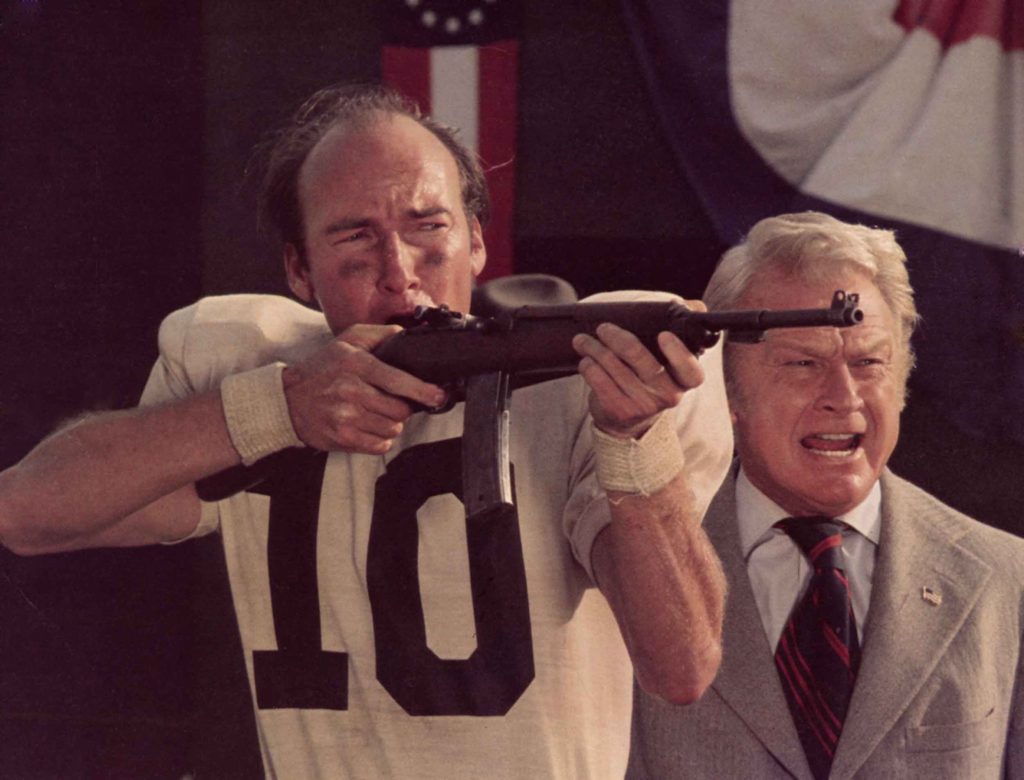
The great Ed Lauter is so indelible as the guard Knauer, having gone from enemy to begrudging admirer, evincing such pleading in his voice as he barks out “Crewe!” — begging his former nemesis to come back so he doesn’t have to shoot him dead, the way he’s been ordered to do. Of course, Crewe’s only gone to retrieve the game ball, the fact that he’s willingly going back to prison and not trying to escape being more of a transgressive act than any jailbreak could have been.
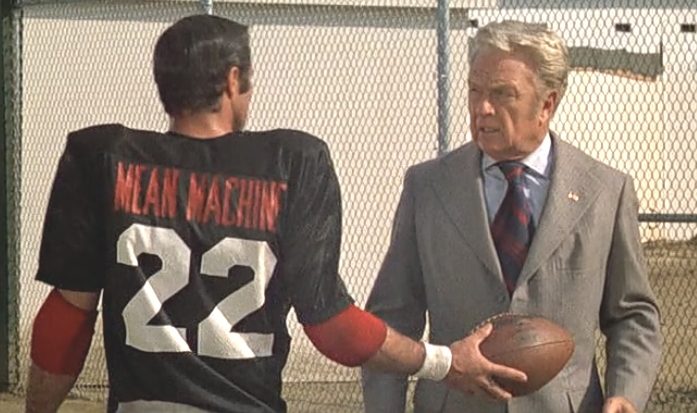
And of course, what makes Burt Reynolds a star is the way he hands the ball to the tyrannical Warden Hazen (Eddie Albert) and half-smirks, “Stick this in your trophy case.” Only Burt could simultaneously play the athleticism, the gravity of the moment, and the insouciance. It’s impossible to imagine any other performer playing this role. I venture to say none could.
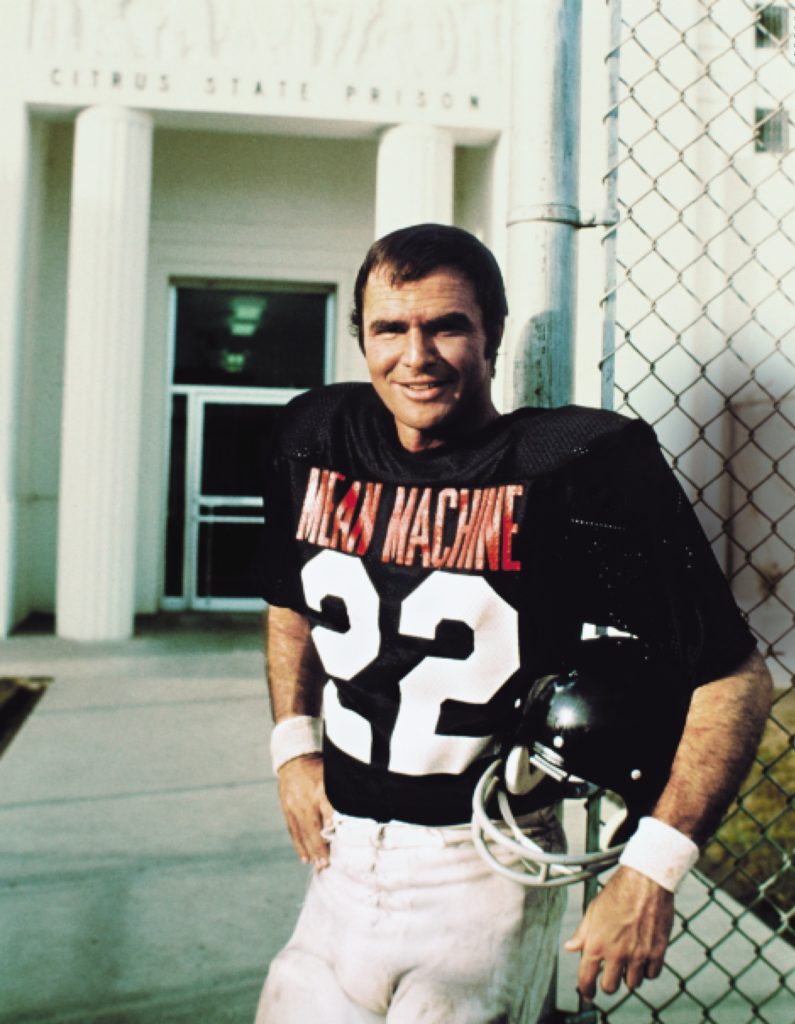
- [THE BIG QUESTION] WHAT’S YOUR FAVORITE FEMALE ENSEMBLE IN MOVIES? - July 22, 2016
- [IN THEATERS NOW] THE BOY (2016) - January 24, 2016
- Cult Movie Mania Releases Lucio Fulci Limited Edition VHS Sets - January 5, 2016
Tags: Action Film, Al Ruddy, Albert S. Ruddy, Anitra Ford, Bernadette Peters, Burt Reynolds, Charles Tyner, Ed Lauter, Eddie Albert, Ernie Wheelwright, football, Frank De Vol, Harry Caesar, James Hampton, Jim Nicholson, Joe Kapp, John Steadman, Joseph Biroc, Michael Conrad, Michael Fox, Mike Henry, Paramount Pictures, Pepper Martin, Pervis Atkins, Prison, Ray Nitschke, Ray Ogden, Richard Kiel, Robert Aldrich, Robert Tessier, Sonny Shroyer, Sonny Sixkiller, sports, The 1970s, Tracy Keenan Wynn

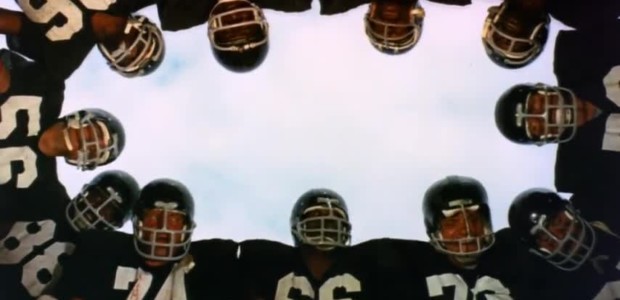





No Comments